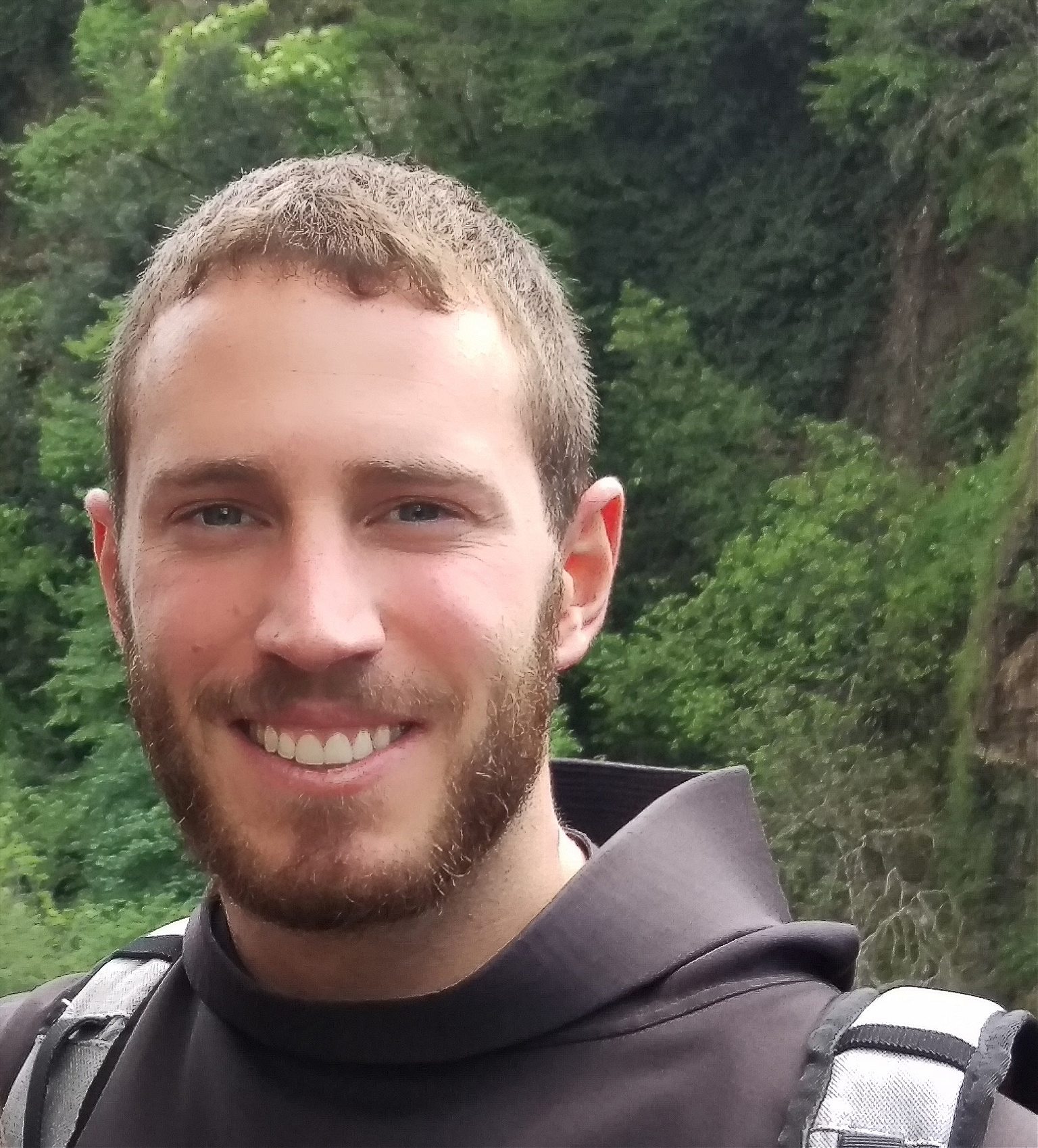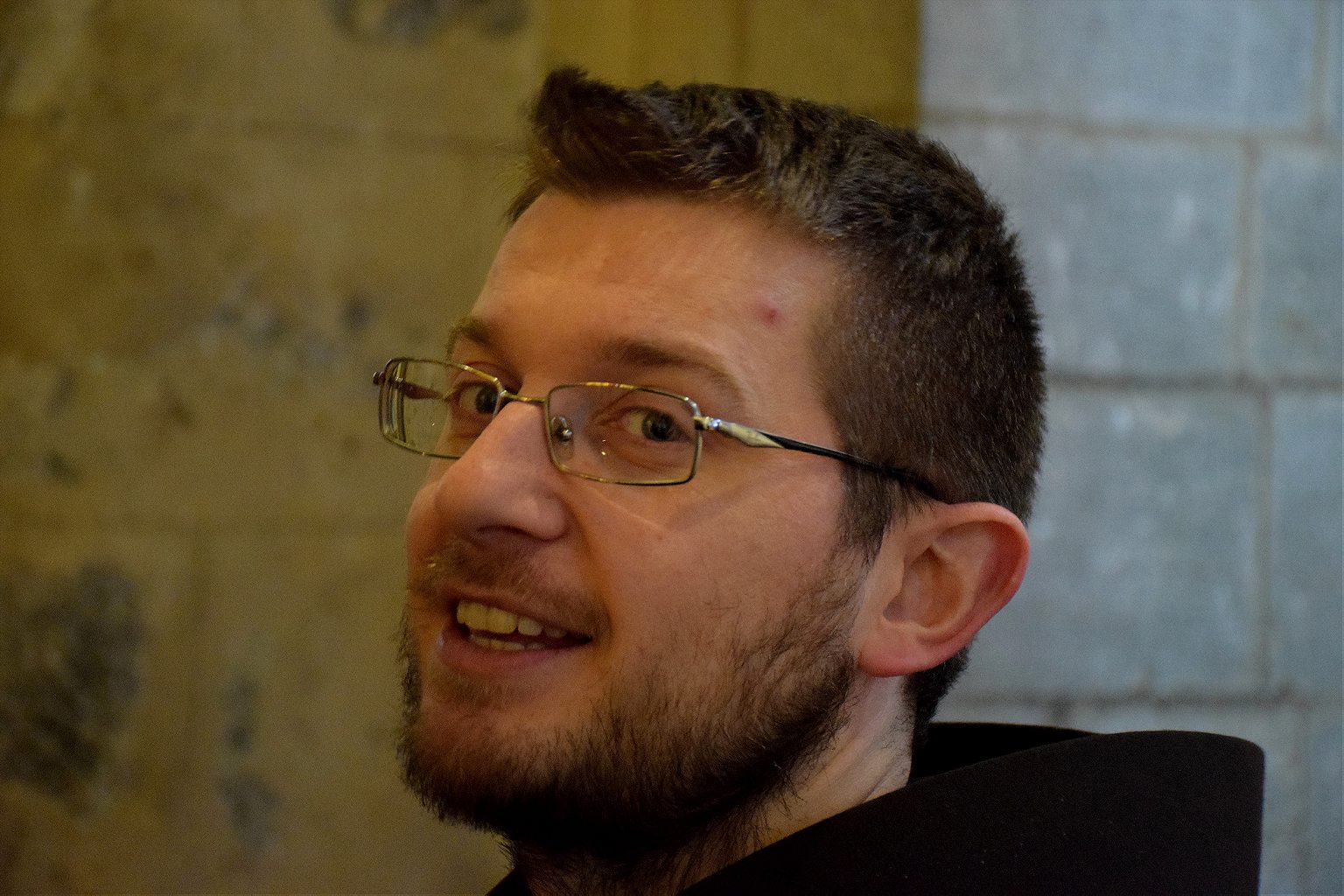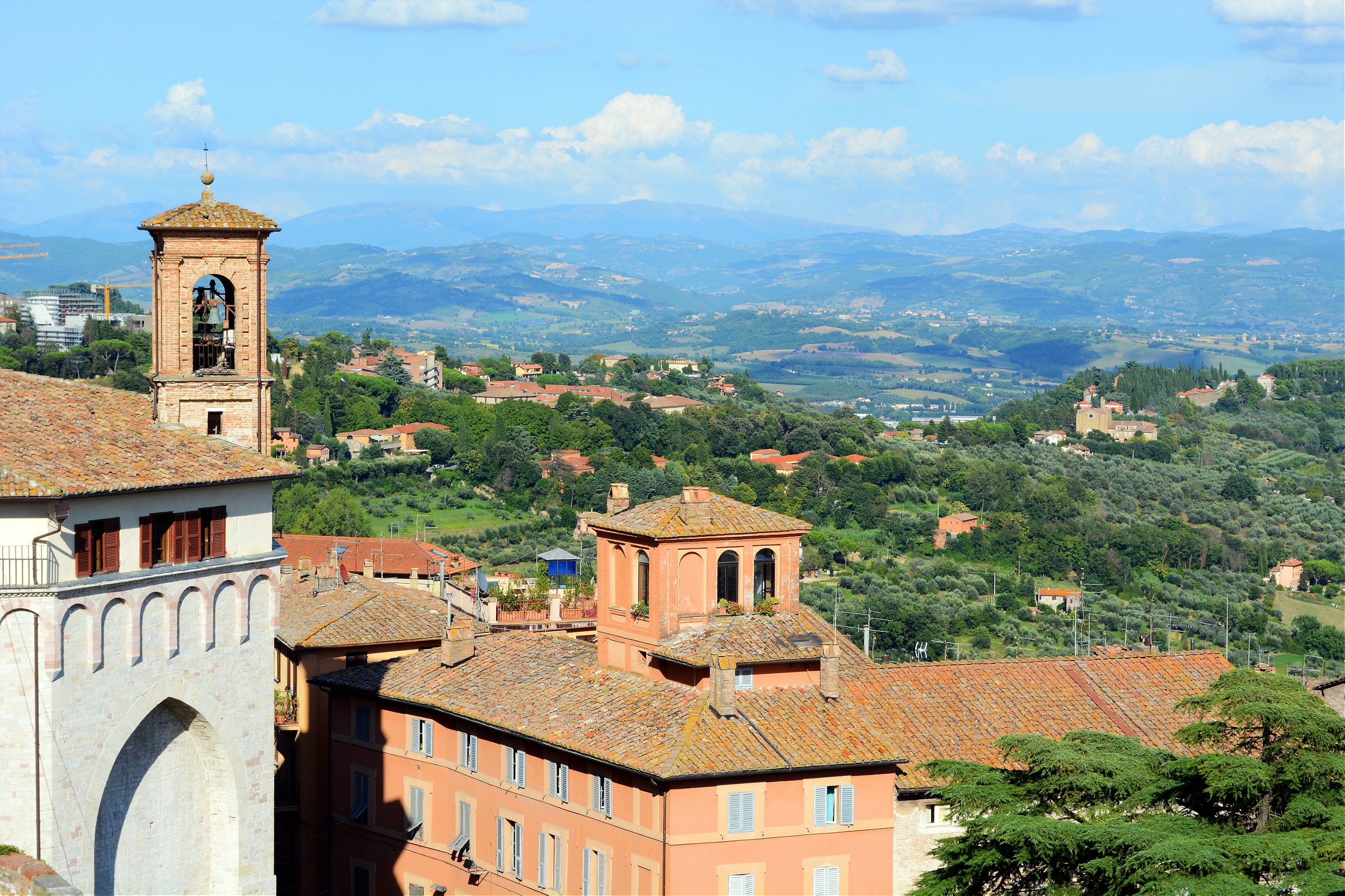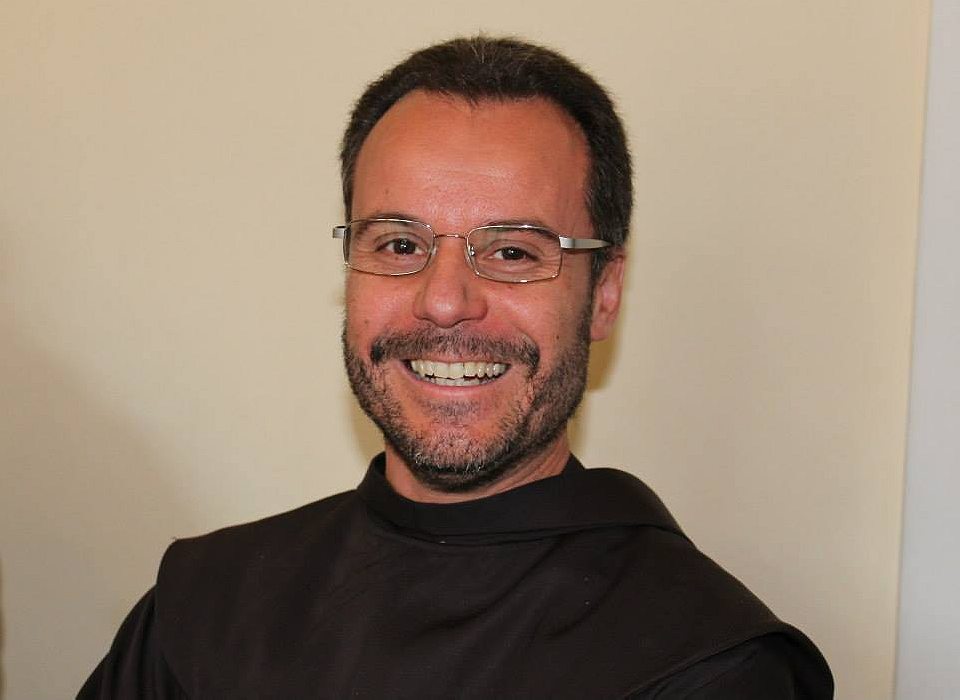My neighbors, the young Franciscan brothers of a 13th-century monastery.
For the past year, I have lived at Casa Monteripido, a 13th-century monastery not far from Assisi, Italy. The brothers who live here have dedicated their lives wholeheartedly to the spirit of St. Francis of Assisi, the son of a wealthy merchant who gave up partying, women, and a love of fine clothes to live a simple life driven by his relationship with God.
As I fell into the rhythms of the monastery, I became fascinated with the young Franciscan brothers.
At a time when the number of religious brothers is decreasing worldwide, these young Italian men—in their 30s and early 40s—made the decision to ordain just as their adult lives were beginning. They have given up their former lives and the search for romantic love.
They have found peace in this surrender. Decisions about where they will live, who they will live with, and their responsibilities in their new community are now out of their hands. They own no personal property, and they rarely know where they will be for more than a year at a time. Each year, their superiors meet to decide whether they will remain at the same monastery or whether they will be moved to a new location.
Casa Monteripido, perched on a hilltop in Perugia, is home to seven Franciscan brothers. The grounds include an olive grove and a garden with a rooftop view of the old city. The brothers offer hospitality to men and women from all over the world, which is considered an important part of their role.

The monastery has strong ties to local universities, so most of the visitors are students and professors. During the summer months, the students leave and tourists, spiritual pilgrims, opera singers, and calligraphers take their place. Many attend short courses held on the monastery grounds. Each day, scores more people visit the monastery to attend daily mass or to seek guidance from the brothers.
Once a week, I sweep the monastery’s cloisters. The rhythmic sound of the broom brushing against the ancient stone paths soothes me. Grateful for the break from writing and editing, I happily assume the responsibility of keeping the cloisters tidy. One day as I sweep, I hear footsteps behind me. Swirling brown robes appear before me. It is Brother Stefano Paolo Gennari. Gentle and unassuming, Brother Stefano is 30 years old, the youngest of the brothers. When he is not wearing his robes, it is difficult to tell him apart from the students.
Brother Stefano arrived just a few months ago, but he has quickly blended into the rhythms of the monastery. He can often be seen working in the garden and tending to the olive grove, basking in the sweetness of silence.
Brother Stefano was ordained at the age of 22. He first considered joining an order where he could spend more of his days engaged in contemplation and prayer, but ultimately, he was inspired to follow St. Francis: to live a life immersed in both action and reflection.

In his teens, Brother Stefano’s life was marred with drug addiction and alcohol abuse. He skipped school frequently, eventually dropping out. He was angry, mostly with himself. Worried about the direction his life was taking, his girlfriend and two other friends helped him to go back to school to complete his diploma.
After he finished school, he travelled to Assisi to attend a course in a monastery, where he met a priest. Brother Stefano revealed all the messy details of his life. Calmly, the priest told him that no matter how many times he fell, it was important to remember that he was are never alone. God was always present, waiting to help him when he stumbled.
Brother Stefano returned home, to the same life and the same friends, but with a different perspective. He stopped drinking and taking drugs. He started university. His relationship with his girlfriend deepened. Then, just as he and his girlfriend were preparing to get married, she cheated on him. He was devastated. He thought he was better off returning to drugs and alcohol. Brother Stefano pauses and looks towards the bell tower. “At that moment in my life, I was so angry with God,” he says.
Despite his anger, he went to church every day, and uttered a prayer that has been on the lips of the faithful for centuries: the Lord’s Prayer. In time, he forgave the woman who broke his heart. “Forgiveness is perhaps the most profound aspect of love, as it offers the person we love liberty,” he says. Around this time, he began to volunteer, helping children with disabilities.
Later, he became involved with another woman. As the relationship became serious, he recognized that he could not take it any further, despite his deep feelings for her. He ended the relationship, and two months later, entered a friary. “I realized that I desired to love everyone equally: my family, my girlfriend, all the children with disabilities who were suffering. Everyone.”
I’m the only Buddhist at the monastery
I visit the church each day, to spend hours sitting in silence. I’m the only Buddhist at the monastery, and the brothers welcome me with open arms. Often I sit with the brothers, whose silence has become as familiar as their words. Each of us prays to our own idea of the divine.
This morning, the brothers have finished praying and have moved on to the numerous other tasks, which create the cadence of their monastic life. The church is dark and cold. Beyond the stained-glass windows, the gray clouds drift across the sky. Suddenly, the church door opens. One of the brothers has returned. When he begins to sing, I know by the melody of his voice that it is Brother Massimo Chieruzzi.
Brother Massimo is energetic, passionate, and in his mid-30s. He can be seen bounding up and down the stairs of the monastery, tending to duties that range from managing the finances to overseeing the monastery’s residential facilities.
On a trip we took to La Verna Sanctuary, tucked away in the Tuscan Apennines, Brother Massimo sat silent and still in the chapel where St. Francis received the stigmata (wounds corresponding to those left on Jesus Christ’s body by his Crucifixion). He had a subtle smile on his lips as he sat; I doubt he was aware of it.
Brother Massimo was motivated to join the Franciscan order by the camaraderie and kindness of the Franciscan brothers he met in his late teens, when they visited his hometown. He grew up in a household filled with violence and spent years trying to protect his mother from his father. Playing the role of the parent despite being the youngest child, he tried to convince his father to change his behavior, and became his mother’s confidant. Brother Massimo was the peacemaker, the one trying to keep the family together.

When Brother Massimo told the Franciscan brothers he wanted to become one of them, they told him that he had to deal with the situation with this family first. “Like St. Francis embraced and kissed the man with leprosy, I had to embrace my father instead of running away,” says Brother Massimo.
He returned to his childhood home, where his father answered the door. Without saying a word, Brother Massimo embraced his father for the first time in his life. He was 20 years old. Shocked, his father stood stiffly, his arms by his side. Adjusting his robes, Brother Massimo says: “Despite trying many times to change my family situation, it was only when I allowed God to enter my heart that I had the capacity to love my father.”
From this moment, instead of responding to his father’s fury with angry words, he would hug him. Shortly after, Brother Massimo entered a friary. A few months later, his father left home and his mother wanted a divorce; the brothers at the monastery urged Brother Massimo to pray rather than intervene. “If you cannot learn how to be your parent’s son, you will never learn how to be a child of God,” the brothers told him.
After a few months, his father returned home and on their 25th wedding anniversary, his parents renewed their marriage vows. Since this time, they have been trying to mend their relationship. For Brother Massimo, this was confirmation that he was meant to live a religious life. “God was assuring me that if I were to follow my vocation, that he would take care of the people I love. If I learned how to be a son, He would be my father.”

The monastery’s garden is where I usually meet other residents. It was here that I encountered a nun visiting from South Korea; I already feel like I’ve known her for decades. Students often chat with me, telling me about the problems they are experiencing in their lives. I sit and listen, gazing at their young faces, often wondering how they will remember the experience of living in a monastery 20 years from now.
Sitting beneath a fig tree, I watch the sun sink behind a neighboring vineyard. Behind me, the mountains of Umbria sprawl across the horizon. Three brothers walk across the garden. Leading them is the head of the monastery, Brother Enrico Voltolini, who is most approachable for the smile that seems to never leave his lips. By his side is the most reflective of all the bothers, Brother Giorgio Diale. Always lost in thought, he gives the impression he is tackling the world’s greatest problems on our behalf. Following close behind is Brother Marco Asselle.
In his mid-40s, Brother Marco moves through the world with a sense of joy and an unshakable stillness. He spends a lot of time outside of the monastery, counseling university students and teaching at the University of Theology in Perugia.
Brother Marco didn’t always believe in God. His childhood experiences with priests who were bitter and stern caused him to distance himself from the church. As an adult, he explored Buddhism. Still, he kept feeling that something was missing.

In his mid-20s, he travelled to Assisi with his girlfriend to attend a course with Franciscan brothers. It had been a decade since he had set foot in a church. Much to his surprise, it was nothing like his childhood experiences of Catholicism. Over the next year, under the guidance of a brother, he discovered that what he had been searching for was God.
Brother Marco was ordained at the age of 27, surprising many people in his life. He spent several years studying theology and completing a PhD in social sciences. He began to find ease in surrender, moving to different monasteries and engaging in work as decided by his superiors. He says it has offered him a surprising sense of freedom. “I can love more freely now, with less expectations,” he says.
For Brother Marco, even moments of difficulty are suffused with the word of God. Developing the ability to understand these words is his life-long task. “I try to focus on putting others before myself,” says Brother Marco, looking toward the vineyard. “This is love.”